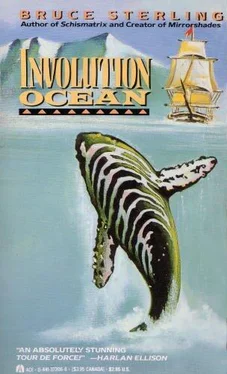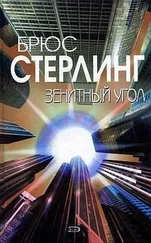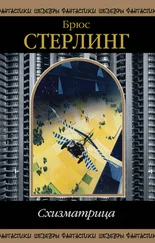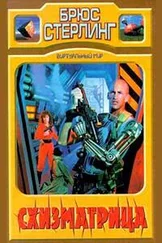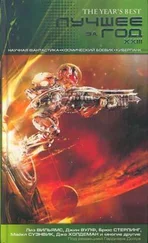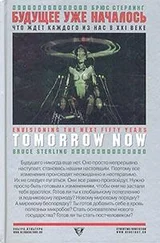Now the scientists were nonplussed. While they thought over the situation, there was a sudden, violent explosion across the crater, high above the atmosphere, at the southern edge of the rim.
There was no explanation for it The smooth, glassy crater-with-the-crater, still partially molten when the outposts investigated, had no traces of radioactivity. There were no meteorite fragments or signs of any chemical explosive. Apparently there had simply been a sudden release of energy from a point source, coming from nowhere, revealing nothing. It was odd that the new crater was of the same radius as fhe Culture’s circular cities. The message was unmistakable.
The two cities were determined not to overreact. They didn’t want to leave the planet, or act with cowardice, or call in a fleet—a distasteful act of aggression. They compromised, deciding to set a large thermonuclear device in stationary orbit over the big crater. In the event of attack it would be a simple, if regrettable process to sterilize the crater. They began work at once.
And the landscape shifted. Beneath the first outpost; something tendril-thin was snaking up the side of the cliff wall. It seemed almost threadlike in the distance, nearly invisible; it was a cylindrical pipe, only six inches wide and the color of a mirror. It was coming from the dust upwards along the wall like the extended tentacle of a monstrous silver octopus. It was apparently in no particular hurry....
Occasionally bulges traveled rapidly up its miles-long length, as if some thick fluid were being pumped upwards in surges inside it. At its very tip, which narrowed to needle sharpness, it moved languidly back and forth along the cliff face, sometimes patting the rock with its sharp blind head, seeming to search, like an earthworm looking for the juiciest part of a corpse. ... It progressed effortlessly upwards, supporting its miles of exposed length easily, as if gravity were somehow irrelevant It was already far above the atmosphere, now halfway up the cliff face, now stopping to slide greasily with a snake’s speed across a blasted, airless plateau, caressing the rock with its thin, silvered belly.
I was swept closer. Dread seized me. It was forty miles up now, fifty, sixty, still daintily kissing the rock with its pointed, featureless snout. Day came, left and came again. The snake continued to rise. The rainbow bubble over the city would keep it out I thought. Nothing could pierce the film as long as the city’s generators kept it going. It was only a few miles below the city now. Would the other outpost see it? Or were they too smug to look?
Across the crater I could see the second city. In the cliff face beneath it there was a soundless snap. A hole a yard across appeared in the rock, and an incredible torrent of dust—the pulverized rock—bunt outward like a horizontal geyser. Bach particle fell through airlessness like lead, cascading down the cliffside with incredible speed and without cohesion. The geyser slowed to a trickle and dust flowed like water.
And now the silver worm had found something, a thin vortical split in the rock, eight feet high, five inches wide. It slid its narrow head into the rock. Surely the fault was too thin for even its slender body. No matter. The snake slid confidently inward. A bulge came rippling up its sixty-mile length, did not even slow as it entered the crevice. Rock cracked, snapped, and split like hot glass dropped in ice-water. Jagged chips broke out from the cliff, falling soundlessly mile after mile, fathering enough speed to be melted into tektites when they hit the atmosphere below.
Now the snake reversed its rippling, bulges traveling downward mile after mile to vanish in the gray dust sea. Ripple followed ripple like peristalsis, and I realized that whatever lived inside that grotesque metal worm was eating its way upward, invisibly, through the last miles of rock.
Automatic sensors had picked up the dust geyser beneath the second city. An alarm wait off; a catlike feathered creature awoke art his console, yawned, stretched, examined the computer’s graceful Elder Culture hieroglyphs on a printout screen. He shut off the alarm, blinked sleepy green eyes, and tried to make sense of the information. It looked interesting; he decided to call his superior.
The worm came up in the center of the first city.
The tesselated pavement split, small brown and white tiles snapping and crumbling, and the worm flowed out in the middle of a multicolored crowd. It paid no attention to the screaming, or to the panic flight, even though some citizens tripped over it or stepped on it. Instead, it wriggled quickly across the street, still feeling its way, tapping nastily with its tapered head. It encountered a building, a ten-story white octagon ribbed with blue metal, and suddenly increased its speed, all doubt removed now, moving with the speed of a cracking whip. It circled the building, leapt through an alley, circled another building, smashed through the plastic panes of a geodesic cylinder and killed five of its inhabitants almost incidentally, smashing them against walls and bulkheads to leave them crushed in broad pools of blood: a red puddle, a green puddle, a copper-colored puddle. ...
It ran and moved and slid with dizzy grace, spearing through some buildings wrapping others in casual helixes of its length, moving through every quarter of the city, crossing its own path a hundred times in a drunkard’s walk of fear, until at last it returned to its point of origin at the city center. There at the crumbled hole a huge being, a metal-hoofed satyr at least eight feet tall, was stamping repeatedly on the body of the worm. He must have weighed over a ton and the hooves on his bristled legs were sharp, but it was like stamping on a bar of stainless steel.
It was all happening at once. Smoke rose in the eastern part of the city, where a group of citizens had tried to use a radiation weapon on a segment of the worm. The beam had glanced off, melting a dozen bystanders and most of a building. Elsewhere, despairing citizens threw themselves into incompleted soul sculptures, convulsing as sections of their psyches were shorn away. Others made frantic attempts to supply a ship for takeoff. Yet others were beginning to radio warnings and pleas for help to their sister city.
The snake stopped. It was convoluted, wrapped around and through the city’s buildings like a tapeworm through intestines. Now it took up the slack. A barely perceptible trembling shook it. Metal began to buckle. Masonry disintegrated. The length of the snake went through, buildings like a wire garrote through a human throat, spilling water, hemorrhaging electric fire as it cut through cables and conduits, messily severing dozens of trapped inhabitants, toppling buildings onto the crowds in the streets.
Then it began to retreat down through its hole, sliding slickly inwards like the extended tape from a tape measure. The satyr was still stamping insanely. With its last few yards, as a final gesture, the worm looped itself around and around him, ignoring his wrenching, twisting hands. Then it squeezed him till he burst.
Hundreds had died, but dozens survived, hidden underground or in buildings strangely untouched. There was one cargo ship in the city still functioning; its cyborg pilot had had the great presence of mind to leap the coil as it slithered around the ship. The ship’s reactionless drive had curdled a building nearby with great loss of life. But the ship, with its cargo of refugees and hastily salvaged soul sculptures, was intact.
The ship was already trying to pick up survivors when the snake slithered out of the crevice in the side of the cliff and collapsed downward, simply falling, threadlike, in mile-long loop after loop after loop. ...
Читать дальше
